Events & Promotions
| Last visit was: 24 Apr 2024, 17:11 |
It is currently 24 Apr 2024, 17:11 |

Customized
for You
Track
Your Progress
Practice
Pays
10:00 AM EDT
-10:30 AM EDT
10:00 AM PDT
-11:00 AM PDT
09:55 AM PDT
-11:00 AM PDT
02:00 PM EDT
-03:00 PM EDT
03:00 PM PDT
-04:00 PM PDT
07:00 PM PDT
-08:00 PM PDT
| FROM Stacy Blackman Consulting Blog: HBS 2+2 Program for College Seniors: How to Get In |
 What comes to mind when you think of business these days? If it’s the stereotype of the grey flannel suit and traditional office environment, then Harvard Business School wants to have a word. To reach college seniors —particularly liberal arts students—HBS launched the 2+2 Program back in 2007. This deferred admissions program targets students who might have otherwise never considered business school. Candidates apply in their senior year of college, and once admitted, work for two years before starting the Harvard MBA program. Graduate students who went directly from undergrad to grad school are also eligible. At SBC, our team includes the former HBS Associate Director of MBA Admissions who helped launch the 2+2 Program targeting college seniors. She explains that the program is all about getting the word out regarding what a graduate business degree can offer. Potential 2+2 candidates may have had few mentors in business. Or, an MBA degree might not be on their radar given their current course of study. “No one ever tells undergrads that business involves areas like nonprofits, government, education and social enterprise,” she says. What should college seniors know about the 2+2 Program? To be considered for admission to the 2+2 Program Class of 2025 (entering fall 2023), you must graduate from your program between October 1, 2020 and September 30, 2021. Your GMAT or GRE test score can be dated no earlier than April 30, 2016. If you wish to take the online GMAT, you must take it no later than one week prior to the submission deadline (April 22, 2021), as this version of the test requires one week for scores to be issued. College seniors outside the US. are welcome to apply. If you are an international applicant attending a non-English speaking undergraduate university, you will need to submit a TOEFL, IELTS or PTE score taken after January 1, 2019. HBS will accept the at-home or online versions of these tests. The 2+2 application is essentially the same as the online application for the traditional full-time MBA program. It has a reduced application fee of $100 vs. the $250 fee for non-2+2 applicants. Note that HBS offers a need-based 2+2 application fee waiver. This waiver is available to all 2+2 applicants for whom the fee presents a financial burden (this includes domestic and international applicants). Notably, 2+2 applications have only one deadline: April 29, 2021. This allows you to submit fall semester grades for consideration. Interviews and decisions happen in May. Although the name implies a two-year work period prior to the MBA, it’s actually more flexible. In fact, the school says in many cases they allow 2+2 admits to defer for three to four years in an HBS-approved professional opportunity. “They always approve a third year of deferral if you are working on something reasonable, i.e. not laying on a beach in Bali,” says our HBS insider. 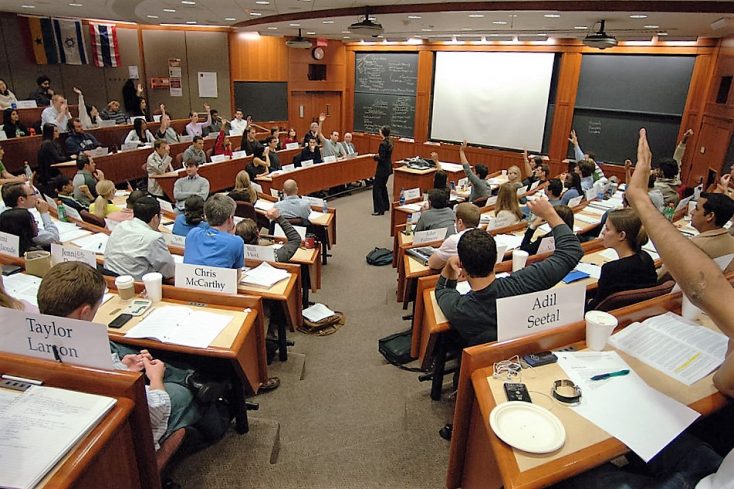 What is HBS looking for in 2+2 applicants? If you check out the 2+2 class profile for the 2020 cohort, the educational background breaks down as follows:
“Traditional applicants were not initially the main target of this program,” our SBC expert shares. “They are looking for all the same qualities and credentials as they do for the regular pool. But then they’re also looking for scientists, engineers, techies, and entrepreneurs, to name a few.” “They really hoped they would find young people who saw the deferred admission as an opportunity to take a risk and do something a little bit off the beaten path.” Therefore, traditional applicants should embrace the “untraditional” side of their personal story. Rest assured, it can be done. As an example, check out our client case study that highlights the successful 2+2 application journey of Anita, an Economics major from Northwestern University. “For the rest, you want the things that 2+2 is looking for to be the focus – science, engineering, entrepreneurship, risk-taking, etc.,” our HBS insider advises. “It’s ok to get dorky in these areas and go deep.” If you are considering the HBS 2+2 Program and need input from an expert sounding board, we’re here to help! Reach out to set up a complimentary assessment of your candidacy today. The post HBS 2+2 Program for College Seniors: How to Get In appeared first on Stacy Blackman Consulting - MBA Admissions Consulting. |
| FROM Stacy Blackman Consulting Blog: B-Schooled Episode #37: A Real Application Review (part 2 of 2) |
 What in the world happens during an AdCom review of an applicant’s materials? What kinds of things do they consider, and how do they approach the different aspects of a candidates’ materials? In this episode of the B-Schooled podcast, we share all the details about another former Stacy Blackman Consulting client. (You can catch Part 1 here.) We’ll explain how the former admissions committee members on our staff assessed his candidacy, and what ended up happening. Listen to B-Schooled episode #37 here, or on any of the podcast apps listed below. B-Schooled is available on most major podcast apps, including: Apple Podcasts Spotify Stitcher TuneIn Please be sure to subscribe to B-Schooled so that you don’t miss a thing. If there’s something you’d like for us to cover in a future episode, please email podcast@stacyblackman.com. We’d love to hear from you! The post B-Schooled Episode #37: A Real Application Review (part 2 of 2) appeared first on Stacy Blackman Consulting - MBA Admissions Consulting. |
| FROM Stacy Blackman Consulting Blog: How Should You Use MBA Rankings? |

Yet, we encourage clients not to focus heavily on rankings when making their MBA program selections. In fact, placing an outsized emphasis on rankings often becomes a distraction for some applicants. Prospective students would do well to focus more on each program’s culture, size, or the strength of its alumni network. If you’re thinking about business school, you should decide the factors that will play a role in where you apply. Consider cost, location, program specialties, faculty’s areas of expertise, and so on. Keep these factors in mind as you research specific programs. This will help you home in on the ones that fit you best. “Applicants see an MBA as a long-term investment in their future,” says Beth Tidmarsh, a former Kellogg School MBA Admissions Officer, now on the Stacy Blackman Consulting team. Most likely, your list will contain a few under-the-radar programs that aren’t at the top of the rankings—provided, of course, that reputation isn’t the only factor that matters to you. Look at data points that are important to your own career path when determining the value of a particular ranking. However, know that if you aspire to a highly competitive position in banking or consulting, a potential employer will likely give an advantage to an applicant from one of the elite schools. Like it or not, that’s the reality in those industries.  That said, we think ranking methodology would be improved by including measures that encompass diversity dimensions such as non-traditional industry students (or career goals) and social impact-oriented students/career goals. MBA Rankings in an Exceptional Season As Find MBA recently noted, business school rankings provide only a limited snapshot of a much larger picture. “Many students have jobs working for social good, which do not always have high salaries but are rewarding in other ways,” says Caryn Beck-Dudley, president and CEO of AACSB International. “The geographic location and cost of living can distort salary reports as well.” “Too narrowly defined methodologies don’t allow for the intricacies of each program to truly shine, and thus can’t give an accurate representation of what the program can do for the learners.” —Caryn Beck-Dudley Given the current state of the COVID-19 pandemic, several schools have opted to forgo participating in MBA rankings this year. We understand and support this decision. Schools shouldn’t be distracted by secondary priorities such as rankings. . At this critical moment, they must focus on program quality and students’ needs and safety above all else. Ultimately, you should choose a program you genuinely connect with. Don’t worry about whether you’ll get into “the best MBA program of all.” Figure out which business school is the best one for you. The post How Should You Use MBA Rankings? appeared first on Stacy Blackman Consulting - MBA Admissions Consulting. |
| FROM Stacy Blackman Consulting Blog: Stanford’s Deferred MBA Program: Get Accepted |
|
[img]https://www.stacyblackman.com/wp-content/uploads/Stanford-GBS-Knight-Management-Center-734x486.jpg[/img] [list] [b]Stanford’s Deferred MBA Program launched in 2010.[/b] [/*] [b]Like the HBS 2+2 Program, it seeks to identify and cultivate the next generation of global leaders.[/b] [/*] [b] Our college senior admits say that they have great job opportunities in the two years leading up to their MBA program because of their early MBA admit.[/b] [/*] [/list] Stacy Blackman Consulting has several consultants exclusively dedicated to college senior clients during the first quarter of every year. Their expertise runs deep for the deferred MBA admissions programs across our client pool. In fact, one of the founders of the HBS 2+2 program is now an [url=https://www.stacyblackman.com/consultant/andrea/]in-house advisor at SBC[/url]. A recent college senior client, who we absolutely loved guiding, agreed to share her deferred MBA admissions experience with SBC’s readers. One of our most experienced consultants was dedicated to this client’s success through SBC’s [url=https://www.stacyblackman.com/comprehensive-services/]All-In comprehensive services[/url]. Their focus on strategic positioning included finding ways to meaningfully support the client’s career aspirations using evidence and rich storytelling. Her SBC consultant commented, “We worked hard and took an unusual angle that ended up working well. She’s a very bright woman and highly motivated. I hope she has a wonderful experience at b-school.” We hope you enjoy this exclusive interview with an inspiring young professional who got admitted to Stanford’s deferred MBA program. [b]How did you hear about the deferred MBA program?[/b] I attended Harvard Business School’s Peek Weekend the summer after my junior year, where I learned about HBS’s 2+2 program. After some googling, I saw other schools also offered deferred MBA programs, including Stanford. [b]What made you decide to apply for deferred MBA programs? [/b] I always wanted to get a graduate degree. As my career evolved, I found myself going down the path of private equity, and an MBA seemed like the most relevant degree to get. One of my tenets in life is “frontloading is key.” So, securing early admission to a program was right up my alley. That way, I don’t have to worry about admissions later. I graduated a semester early in December 2019, and then COVID hit in the spring. Suddenly, any traveling plans I had vanished. I took advantage of all the time I had left over and used it to prepare my applications. [img]https://www.stacyblackman.com/wp-content/uploads/COVID-travel-pexels-anna-shvets-4167559-734x665.jpg[/img] To be completely honest, I don’t have a great concrete reason for getting an MBA. I think the conventional reasons for getting an MBA are definitely beneficial (for networking, resume prestige, learning skills, etc.), but I think I am just most drawn to the personal development I’ll get out of the degree. As with many type-A students and high-achievers, we never stop to evaluate the reason why we work so hard. The MBA program will be a great time to reflect on my sense of purpose and motivation for why I do things. Hopefully, that will also help me determine longer-term career goals. The great thing about deferred MBA programs is that you get access to an amazing network of the most interesting, smart people you’ll ever meet—years before you even start your MBA. Connecting with these people early on has enabled me to jump-start that self-reflection process by learning from others. That’s a huge benefit of the deferred programs that I think isn’t discussed enough. [img]https://www.stacyblackman.com/wp-content/uploads/Stanford-aerial.jpg[/img] [b]What do you feel allowed you to be successful with getting admits? Any suggestions on how to stand out?[/b] Maturity and self-awareness are key! Ultimately, your experiences probably aren’t that unique, given the huge number of applications programs will get every year. But it’s how you frame them, reflect on them, and use them to showcase yourself that will set you apart from others. Personally, I highlighted a few experiences that didn’t really seem like they tied together based on the subject. But I used it to show a facet of my personality. (When presented with opportunities in life, somehow, I always end up choosing the more challenging one). If you can [url=https://www.stacyblackman.com/differentiate-yourself-mba-admissions/]showcase your personality[/url] rather than your achievements on an application, I think that’s pretty impressive and memorable. [b]What advice or tips do you have for others applying to Stanford’s Deferred MBA program?[/b] First of all: [url=https://www.stacyblackman.com/finalize-your-list-of-target-mba-programs/]don’t be afraid to apply[/url]! Never in a million trillion years did I think I had a shot at getting into the GSB. But I applied anyway, just to prevent any sense of regret of not trying. And it worked out great. Even if you think you don’t have many concrete accomplishments under your belt, don’t fret. Imposter syndrome is real even for admitted students. Something really enlightening I heard from another admit is that Kirsten Moss (Stanford GSB Admissions Director) said they view applicants as a venture capital investment. The GSB is choosing [url=https://www.stacyblackman.com/guides/strategy/stanford/]a range of people to invest in[/url] because of their future potential to change the world. Perhaps they’ve already shown a history of doing so, but other times they haven’t. Instead, those applicants show a promising trajectory that they’ll get there in the future. Stanford cares a LOT that students have a genuine interest in making some larger, positive, social impact on the world. Yes, the point of business school is for your own career advancement. But GSB wants that career advancement to amount to broader social advancement, too. [img]https://www.stacyblackman.com/wp-content/uploads/clear-light-bulb-planter-on-gray-rock-1108572-734x490.jpg[/img] So, pick an industry that aligns with your past experiences and interests. Talk about why that’s important to you, what your career plans are in that space, and gently weave in how your career will have a ripple effect on the communities around you. [b]Any “don’ts…” to share? What should applicants for Stanford’s deferred MBA program avoid doing?[/b] Don’t go over the word limit on essays, send in additional materials/letters, etc. These are simple rules to follow! But do fill in all the essay/mini-essay sections that are available. Each response is a portion of the larger kaleidoscope that shows how interesting and 3D of a candidate you are. [b]Do you think the college senior round is more competitive?[/b] It’s hard to say. College applicants are definitely people who really have their s*** together. They’re able to pull all the application components together on a shortened and earlier time horizon (study for the GMAT, have strong enough relationships to warrant [url=https://www.stacyblackman.com/recommendation-letter-mba/]great letters of recommendation[/url], etc). But, they’ve also had [url=https://www.stacyblackman.com/younger-mba-applicants-readiness/]less time to accomplish things in life[/url]. This means the average of historical achievements is probably lower than if you look at a group of working professional applicants. I think there’s also something to be said for maturity level. Obviously, seniors, on average, are less mature than older working people. To have a successful application, you must have sharp self-critical and reflection abilities. Also, be unafraid to confront both the good and [url=https://www.stacyblackman.com/turn-failure-into-a-great-business-school-admissions-essay/]the ugly side[/url] of your personality and accomplishments. Use that self-awareness to construct the [url=https://www.stacyblackman.com/exercises-to-help-mba-applicants-develop-a-personal-brand/]best possible marketing package[/url] (your application) that you can. Overall, I don’t think it really matters how much more or less competitive the deferred MBA is. If you’re gunning for top programs, they will all be very competitive regardless of the year and the round and the group of people you go up against. If you are self-aware and can stay on the ball, I’d highly encourage applying for deferred MBA programs. Even if you don’t get in, you have many chances later to apply. Your GMAT will out of the way—or at least you’ll have a base score to work from. Plus, you’ll learn a lot about yourself through the application process. That’s good for self-maturation as well as informing your next round of apps. We hope you enjoyed this exclusive interview with an inspiring young professional who got admitted to Stanford’s deferred [url=https://www.gsb.stanford.edu/programs/mba/admission/application/deferred-enrollment]MBA program[/url]. Check out our How to get into HBS 2+2 overview [url=https://www.stacyblackman.com/blog/hbs-2-2-harvard-program-college-seniors/]here[/url]. Additional college senior tips can be found [url=https://www.stacyblackman.com/top-deferred-mba-programs-mba-without-work-experience/]here[/url]. The post [url=https://www.stacyblackman.com/stanfords-deferred-mba-program-get-accepted/]Stanford’s Deferred MBA Program: Get Accepted[/url] appeared first on [url=https://www.stacyblackman.com]Stacy Blackman Consulting - MBA Admissions Consulting[/url]. [img]https://feeds.feedburner.com/~r/StacyBlackman/~4/-htSWr0l1j8[/img] |
| FROM Stacy Blackman Consulting Blog: B-Schooled Podcast Episode #38: For Waitlisted Candidates |
 MBA candidates who’ve been waitlisted can feel like they’re in some sort of admissions purgatory. In this episode of B-Schooled, our host Erika and her fellow SBC consultant and former MBA admissions director Lisa discuss what options waitlisted candidates have to learn more about why they were waitlisted and what, if anything, they can do to increase their chances of admission. Listen to B-Schooled episode #38 here, or on any of the podcast apps listed below. And don’t forget to enjoy the holidays amidst all your application work! B-Schooled is available on most major podcast apps, including: Apple Podcasts Spotify Stitcher TuneIn Please be sure to subscribe to B-Schooled so that you don’t miss a thing. If there’s something you’d like for us to cover in a future episode, please email podcast@stacyblackman.com. We’d love to hear from you! The post B-Schooled Podcast Episode #38: For Waitlisted Candidates appeared first on Stacy Blackman Consulting - MBA Admissions Consulting. |
| FROM Stacy Blackman Consulting Blog: Kellogg Interview: Format, Criteria + Sample Questions |
|
[img]https://www.stacyblackman.com/wp-content/uploads/kellogg-interview-advice-1-734x413.png[/img] Northwestern University’s [url=https://www.stacyblackman.com/mba-application-advice/northwestern-kellogg/]Kellogg School of Management[/url] has created arguably the most collaborative culture of all the MBA programs. The single most important question your Kellogg interview must answer is whether you will fit in with the school’s team-oriented, “give more than you take” culture. The full-time MBA program also stands out from other elite business schools in that it seeks to interview every applicant. It achieves this impressive feat by tapping into its global network of more than 65,000 alumni. Kellogg extends this unique opportunity to learn more about each candidate beyond what they see on paper. If you’re preparing for your Kellogg interview, read on for SBC’s expert insider advice, culled from three former Kellogg admissions officers who are now on our SBC team: [url=https://www.stacyblackman.com/consultant/caryn/]Caryn[/url], [url=https://www.stacyblackman.com/consultant/beth/]Beth[/url], and [url=https://www.stacyblackman.com/consultant/colette/]Colette[/url]. Each of these experts conducted Kellogg interviews and made candidate admit decisions across thousands of applicant cases. [email=info@stacyblackman.com]Contact us[/email] today to request availability for interview prep with one of our Kellogg admissions experts. [img]https://www.stacyblackman.com/wp-content/uploads/Kellogg-Adcom-1-734x328.jpg[/img] Kellogg Interview Format Kellogg interviewers are a mix of AdCom (Admissions Officers), students, and alumni. The interviewer does not read your application file and will see only your resume before the interview. Interviews are a mix of resume review, career goals, and “why an MBA?” components, along with a behavioral question or two. Career focus is key. Do the career goals make sense? Are they realistic and well-thought-out? Is the need for an MBA clear? These days, they often include a question that will touch on diversity. For part of the interview, Kellogg uses the [url=https://blogs.kellogg.northwestern.edu/inside/2019/08/23/mba-application-interview/]behavioral[/url] interview style – especially focusing on bringing out examples of teamwork and leadership. “I would always ask a couple behaviorals around leadership, teamwork, dealing with difficult teammates, etc. Knowing and utilizing [url=https://www.stacyblackman.com/star/]STAR[/url] is definitely the way to go,” shares Colette. Fellow Kellogg expert Caryn agrees, saying that “the STAR method is still the gold standard for answering behavioral type questions.” Several of our recent clients mentioned feeling like the vibe of Kellogg’s interviewers was more “business-like” than other schools. However, they did warm up and become more casual during the Q&A toward the end of the interview. Interviews are consistently around 30+ minutes. It’s rare to spend an hour interviewing via Zoom. One of our former Kellogg admissions officers says, “For an admission officer interview, about 30 minutes is the norm, sometimes inching up to 40. I once did one in 20 minutes (the interviewee wasn’t talkative at all), but I always try to commit to 30 plus minutes… even if I was asking what color the sky was to keep up the conversation!” [img]https://www.stacyblackman.com/wp-content/uploads/Kellogg-Global-Hub-1-734x513.jpg[/img] Kellogg Interview Evaluation Criteria We asked Beth, who left her Kellogg MBA admissions officer role several years ago, about evaluation criteria. Beth shared with us that Kellogg had moved on from the 2 number/5 point rating scale in the last five years. The new evaluation format for Kellogg interviewers is a drop-down menu, with terms like: [list] [*]Strongly recommend[/*] [*]Recommend[/*] [*]Do not recommend[/*] [*]Strongly do not recommend[/*] [*]Anything miscellaneous[/*] [/list] The Kellogg interview evaluation criteria encompasses the following categories. [b]Career Path and Career Plans[/b] [b]Tips:[/b] Merely demonstrating the ability to perform the tasks associated with your position successfully won’t suffice to get you into Kellogg. Instead, you will need to reveal to your interviewer that you have taken the initiative to solve problems at work, pursued leadership opportunities, advanced at a rapid rate, and so on. You can also use career-related questions to discuss the steps you’ve taken to reach your larger career goals. When your interviewer asks questions about your career-to-date, share your story. Don’t just reiterate what’s already on the page. Instead, craft a narrative highlighting which of your roles and responsibilities have prepared you for your larger career goals. Use this opportunity to explain how a Kellogg MBA will help you address specific gaps in your professional experience [b]Academic/Intellect[/b] [b] Tips:[/b] An impressive undergraduate GPA and high GMAT or GRE scores gives the admissions committee an idea of your intellectual capacity. But they don’t tell the whole story. Therefore, your interviewer will ask questions designed to examine your love of learning and your creativity. Do you follow your passions, even if they may not help you get ahead in your career? Do you find a way to integrate what you learn from those passions into your professional and personal life? Your interviewer will also ask questions designed to get the “inside story” on what has driven some of your big life decisions so far – another method of uncovering your passions and witnessing your intellect in action. [b]Communication and interpersonal skills[/b] [b]Tips[/b]: In any discussion of Kellogg’s MBA program, one of the first words you will hear is “teamwork.” So, it should come as no surprise that your interviewer will assess your interpersonal skills. “People who work best in solo settings, owning just their own work, will not be comfortable in Kellogg’s highly collaborative atmosphere,” says SBC consultant Caryn. Also, you’ll want to come prepared with stories of how you’ve managed conflict in group situations. Try to convey that you feel comfortable playing many roles in team settings: leader, collaborator, mediator. Remember, whether you’re interviewing with a current student member of the admissions committee or with an alum, they will be thinking, “Would I want to work in a group with this person?” [b]Extracurricular involvement and leadership[/b] [b]Tips:[/b] Each of us forms a part of several communities—both inside and outside of work. Those who have a habit of leadership ask themselves, “How can I make this community stronger?” In other words, they engage with the community and enlist others’ help, taking a leadership role to make a lasting impact. Think about examples from your experiences, possibly draw on the leadership you’ve demonstrated in your extracurricular activities or through volunteering. This can help reveal more of your passions and personality to your interviewer. [b]Kellogg knowledge[/b] [b]Tips:[/b] Your interviewer will want to understand which of your unique attributes will allow you to make a lasting impact on the Kellogg community. Let your enthusiasm for Kellogg shine through. If you could substitute the name of any other top business school with your answer, then it won’t convince your interviewer that you can impact Kellogg specifically. SBC consultant Caryn echoes this advice. “Do your research! As Kellogg has two interview components (video and live), you have a tremendous opportunity to display your in-depth knowledge before the Kellogg admissions committee.” [img]https://www.stacyblackman.com/wp-content/uploads/Kellogg-Global-Hub-2-1-734x490.jpg[/img] Sample Interview Questions Preparation is key to a successful Kellogg interview. Expect that the interviewer will ask you a high volume of very specific questions in an attempt to determine your fit with Kellogg. Make sure to have a number of detailed examples in mind. So far this season, our clients have answered a sampling or combination of questions, such as: [list] [*]Why do you want to get an MBA?[/*] [*]Why Kellogg?[/*] [*]What are your short and long-term goals? How does Kellogg get you there?[/*] [*]What do you foresee to be your biggest challenge in an MBA program?[/*] [*]Walk me through your resume.[/*] [*]Tell me about yourself.[/*] [*]What is your favorite part of your current job?[/*] [*]What was your biggest accomplishment in your current role?[/*] [*]Walk me through a typical week in your role.[/*] [*]Talk about a team situation where differences existed between team members.[/*] [*]Tell me about a time you had to pick yourself back up.[/*] [*]Tell me about a time you worked in a team with a group of people from diverse backgrounds. What challenges did you face? Share some of the rewarding aspects of the experience.[/*] [*]What clubs/activities would you get involved in?[/*] [*]In your last performance review, what were three positive pieces of feedback your manager gave you? And, what are two areas they want you to improve on?[/*] [*]What is one weakness the AdCom might see in your application? What strengths would you most want to highlight? [/*] [*]Is there anything we didn’t cover that you would want the AdCom to know about?[/*] [*]Any questions for me?[/*] [/list] [b]Get prepared![/b] Our SBC clients usually take 1 to 2 hours to get prepared for their Kellogg interview. [url=https://www.stacyblackman.com/contact-sbc/]Contact us[/url] today to request availability for interview prep with one of our former Kellogg Admissions Officers. Availability varies depending on the stage of the season. The post [url=https://www.stacyblackman.com/mba-kellogg-interview-format-criteria-sample-questions/]Kellogg Interview: Format, Criteria + Sample Questions[/url] appeared first on [url=https://www.stacyblackman.com]Stacy Blackman Consulting - MBA Admissions Consulting[/url]. [img]https://feeds.feedburner.com/~r/StacyBlackman/~4/ZLa-BxADPoo[/img] |
| FROM Stacy Blackman Consulting Blog: How Self-Doubt Can Stall Your Career |
 “FRESH IDEAS FROM THE BLACKLIGHT” SBC’s Weekly Newsletter for Professionals Even the most prepared and accomplished professionals experience periods of self-doubt. Often, these feelings work on a subconscious level. But if left unaddressed, they can limit your potential and can even sabotage your career. For some, the root of self-doubt lies in fear of failure. Others, meanwhile, have a fear of success. So, whether you suffer from full-blown impostor syndrome or need a gentle reminder to push past your insecurities, these proven tactics can help you own your achievements. Doubt kills more dreams than failure ever will. —Suzy Kassem Conquering Self-Doubt Ellen Taaffe, assistant professor of leadership at the Kellogg School of Management, has learned how to manage her self-doubt over a long career in brand marketing. Taaffe offers three tips in Kellogg Insight for how to act decisively, even when you feel out of your league. Tip 1: Don’t stay in the role of observer. Often, the default response in the face of insecurity is to watch the action from the sidelines. Either you’re afraid of making a mistake or feel unqualified to dive in. Taaffe warns against this tendency to hang back and observe. “Staying silent is a self-protection mechanism, but it’s not the best choice.” Instead, she suggests launching in as early as possible. Moments of career transition, such as starting a new job or managing a team for the first time, are ideal times to put this into practice, Taaffe explains. By shifting your perspective from “I don’t know this yet” to “I’m learning here,” you bring fresh ideas to the conversation, she adds. “The more you chime in,” says Taaffe, “the more comfortable you will feel the next time.” Tip 2: Take a cue from those around you. Self-doubters tend not to go for a promotion or head up a project unless they feel 100% qualified. Research shows that men are more likely to throw their hat in the ring for a promotion—even if they don’t quite meet the job description criteria. On the other hand, women often want to feel completely capable of doing the job before they apply.  Overcome your self-doubts by looking at how other people at your company have accepted a stretch assignment and succeeded. Stretch assignments get you noticed and put you in the spotlight in the eyes of management. While there is the potential to fail, more likely, you’ll see a positive impact on your career advancement by taking that risk. “It’s easy to forget that all of us are hired or promoted due to our potential to learn the role versus already being able to do it at an A+ level,” says Taaffe. “If we hold ourselves to a higher bar than others and as a result do not pursue bigger opportunities, we can get left behind, even in roles where we could have developed and excelled.” Tip 3: Watch your language. Your word choices and communication style can telegraph your self-doubts to the world. Common blunders include speaking too fast and using filler words and phrases, such as “you know,” “um,” “uh,” and “like.” Then, there’s the tendency to end a sentence on a higher octave, making it sound like a question rather than a statement. Taaffe recommends avoiding rhetorical questions or opening qualifiers. Phrases like “Does that make sense?” or “This may be a bad idea but…” signal doubt, she explains, and makes listeners think that the statement is less worthy of consideration. Instead, Taaffe suggests using “more confident-sounding open-ended questions, such as ‘What are your thoughts?’ or ‘What questions do you have?’.”  Another helpful trick is to record yourself speaking in a mock presentation or answering job interview questions. That way, you can spot and analyze those verbal ticks. You may cringe while reviewing it, but you’ll also learn at once where you need to improve. Finally, seeking feedback from a supervisor might put an end to a lot of the self-doubt you feel. Hearing the unvarnished truth from a trusted friend or mentor can offer much-needed clarity. Also, Taaffe says, “It can act as encouragement to monitor your own behavior and give you a confidence boost that acts as a kind of permission to jump right in and not hold back.” *** Did you enjoy this post and its tips to conquer self-doubts? It originally appeared on the Blacklight, our weekly newsletter for professionals. At the Blacklight, we aim to illuminate with every dispatch that lands in your inbox. If you’re thirsty for guidance to help you slay it at work or as a student and move your goalposts closer, sign up today! The post How Self-Doubt Can Stall Your Career appeared first on Stacy Blackman Consulting - MBA Admissions Consulting. |
| FROM Stacy Blackman Consulting Blog: Is an MBA Worth It? Here’s Your Checklist |
|
[img]https://www.stacyblackman.com/wp-content/uploads/spiral-number-heart-symbol-circle-help-932567-pxhere.com_-734x551.jpg[/img] [list] [*]Block out the noise[/*] [*]See the big picture[/*] [*]Consider your values[/*] [*]Look at costs and financial aid[/*] [*]Know that brand matters[/*] [*]Adjust by location[/*] [*]Define your priorities[/*] [/list] [b][img]https://www.stacyblackman.com/wp-content/uploads/Is-an-MBA-worth-it-Value-of-MBA-checklist-SBC-369x734.jpg[/img] Step 1: Block out the Noise[/b] Young professionals have always evaluated the worth of embarking on a two-year MBA program. This value analysis typically happens well before they commit to the MBA application process. Media outlets from Forbes to the Wall Street Journal sometimes promote a one-size-fits-all approach when speaking about whether the MBA is worthwhile. Even Elon Musk recently got in on the conversation, criticizing the MBA degree to generate headlines or for virtue-signaling. What Musk and the media writers often have in common is that they don’t break down the MBA decision according to the individual’s priorities, aspirations, and desired MBA programs. For example, an MBA from a random, unranked university has nowhere near the same value as an MBA degree from Harvard, HBS. [b]Step [/b][b]2: [/b][b]See the Big Picture[/b] Most top MBA applicants are, by nature, diligent and analytical. So, logic suggests MBA aspirants would always calculate return on investment (ROI) based on costs, tuition, short-term salary potential, etc. Yet, in our two decades of experience, we see that top-tier MBA applicants usually do not run such calculations. Here’s why. So many variables of the “Is the MBA worth it?” analysis are qualitative. For example, you can’t assign an absolute value or number to the networks and prestige afforded by an elite MBA brand. In fact, the spreadsheets we have seen across thousands of applicants aren’t about the ROI of MBA programs at all. For example, applicants rank HBS or Wharton a “10” for career potential. Our client pool focuses much more on “Do I have a chance of getting in?” or “What are my admit odds for a top 10 MBA program?” They are not at all interested in a cost/ benefit analysis of the MBA degree itself. [b]Step [/b][b]3: Consider Your Values and Aspirations[/b] Most high-performing MBA applicants we work with are aspirational and focus on the qualitative upsides of the MBA experience. “I think the conventional reasons for getting an MBA are definitely beneficial,” a recent Stanford GSB admit that we worked with says. “But I think I am just most drawn to the personal development I’ll get out of the degree. As with many type-A students and high-achievers, we never stop to evaluate the reason why we work so hard. The MBA program will be a great time to reflect on my sense of purpose and motivation for why I do things. Hopefully, that will also help me refine longer-term career goals.” Business school aspirants know that top MBA programs have a wealth of resources to ensure they will stay at the forefront of industry developments. “Many MBA students have mesmerizing visions for their future,” says Stacy Blackman, President of Stacy Blackman Consulting. “As such, MBA hard costs are truly trivial relative to their grand professional goals.” [b]Step 4: [/b][b] Look at Both Cost and Financial Aid[/b] The face value of this degree is easily over $100,000, making the question “Is an MBA worth it?” a vital one. But, we recommend looking at adjusted costs after financial aid or scholarship. Let’s look deeper: Costs vary by program and are adjusted once you factor in scholarships and financial aid. For example, HBS emails this explainer to prospective MBA applicants: “HBS offers admission to the strongest applicants without any knowledge of their financial situation. In return, students are expected to take responsibility for the expense of earning the degree and determine how best to pay for their studies. Taking the responsibility for the financial aspects of earning an MBA is a fundamental part of each student’s obligation.” “Students are encouraged to draw on personal resources wherever possible to minimize debt,” writes HBS admissions. HBS shared in an email to a prospective MBA student, “approximately two-thirds of HBS students receive some assistance.” [img]https://www.stacyblackman.com/wp-content/uploads/HBS-financial-aid.png[/img] MBA programs guide post-admit financial aid resources. To illustrate cost and aid scenarios, see the one-year cost analysis summary at the left from the [url=https://www.hbs.edu/mba/financial-aid/tuition-assistance/Pages/cost-of-attendance.aspx]HBS site[/url]. Across our client pool, we have seen many applicants receive [url=https://www.stacyblackman.com/mba-scholarship-trends-m7-schools/]full-ride scholarships[/url]. Any scholarships extended along with the initial offer of admission are the best way to defray tuition costs. Once you submit your application, it is automatically considered for a scholarship based on school-specific criteria. But fierce competition exists for these fellowship and scholarship dollars. [b]Get the Insider Edge[/b] The SBC team has former Admissions Officers (AdCom) from every top program, including HBS, Stanford GSB, and Wharton. We know how to help applicants build a strong pitch for why they deserve a coveted spot in the program. That pitch should be clear and compelling enough to generate both an admit outcome and scholarship generosity. Is an MBA worth it? “Our clients receive literally hundreds of thousands in financial aid every year,” says Blackman. “We hit close to $4.8 million from last season, and 25% of clients received scholarships last year based on the high quality of their applications.” Laura, a recent SBC client, shared her scholarship outcomes that resulted from an optimal application strategy. “I am an international applicant with a non-traditional background. I applied to several programs last year but failed to get admittance. Before approaching SBC, I did not understand my strengths or feasible career goals because I didn’t know the vast MBA applicant landscape. Through the all-in engagement with the SBC team, I was admitted to two schools with a large amount of scholarship to cover 50-80% of the tuition,” Laura says. [b]Step 5: Know That Brand Matters [/b] Lately, there’s more emphasis on the MBA program’s rank, especially within the traditional cohort of finance and consulting applicants. MBA demand has surged since the COVID-19 pandemic started. Opportunity costs have diminished in these tenuous economic times, and applicants have become more willing to leave their positions for reputable MBA programs. A former MIT Admissions Officer on the SBC team shares, “Those top MBA programs will give the best and the brightest access to the top employers, top salaries, and fantastic networks. All of that is very valuable.” “There’s no better example than one of our female candidates this past season,” says Esther Magna, Principal at Stacy Blackman Consulting. ”She received scholarship dollars to many top MBA programs, including a 100% scholarship to an M7 program. She declined the free tuition at two other programs ranging between $100,00-$200,000 and instead chose Wharton, where she will pay the full tuition. The Wharton brand, for her specific career path and ambitions, was that valuable.” Blackman concurs, adding that “MBA applicants are more focused on MBA program brand now than ever before. Brand predicts rigor of student peer group, enhanced legitimacy of the degree, and long-term professional networks.” [b]Step 6: Assess Worth by Location and Program Type[/b] The program’s location should also influence your decision. “Geography is key, especially for international candidates but also to an extent US candidates,” says Christine Hawkins, a London-based Senior Consultant on the SBC team. [b][img]https://www.stacyblackman.com/wp-content/uploads/pexels-andrea-piacquadio-3769138-734x481.jpg[/img] [/b] Post-MBA career preferences should drive location choices. For example, a professional who wants to work in the US should focus on US MBA programs. Likewise, an applicant interested in the EU for post-MBA work should look into INSEAD and LBS. “Think carefully about where you plan to be long-term. Consider the reputation and the network of each program in your target geography, both now and where you believe it will be in 10 or 20 years,” Christine advises. Also, career location outweighs program length. Note that one-year programs often lack summer internships, so there isn’t a “better” format between the one year vs. two years. Instead, it is about the individual candidate’s profile and priorities. [b]Step 7: Define MBA Worth by [/b][b]Your [/b][b]Priorities[/b] “With our clients, we really dig into actual career goals in deciding which MBA program applications are worth pursuing,” shares Caryn Altman, a Senior Consultant on the SBC team. “We do an in-depth discussion of post-B-school location preference, as that can be a huge factor. We counsel our clients to network with those who have an MBA in the chosen field so they can frame not only short-term career placement but also longer-term career trajectory and the importance of a particular MBA program in their successes. Also, we encourage our clients to engage with current MBA students to define the MBA’s value for their needs further.” [img]https://www.stacyblackman.com/wp-content/uploads/sign-you-have-been-looking-for-734x531.jpg[/img] The MBA’s worth depends entirely on your professional profile and career aspirations and what you do once you are at the program. Fit with and performance at the program are essential. For example: [list] [*]a low-performing Wharton student won’t get the full ROI from the program [/*] [*]a high-performing Cornell student who hustles to get the right-fit summer internship at an elite company will enjoy a great ROI for his or her MBA experience[/*] [*]a liberal-arts-educated applicant who needs the MBA to learn hard skills will find a strong ROI at almost every top 20 MBA program[/*] [*]a healthcare-minded professional who uses the specialized healthcare experts/coursework—at Wharton’s Healthcare Management program or the comparable at Duke Fuqua—will create incredible professional opportunities regardless of the specific ranking of the program for a given year[/*] [/list] If you have completed this checklist and feel inspired to embark on the MBA journey, then go for it! Contact us for a free candidacy evaluation [url=https://www.stacyblackman.com/contact/]here[/url]. The post [url=https://www.stacyblackman.com/is-an-mba-worth-it-heres-your-checklist/]Is an MBA Worth It? Here’s Your Checklist[/url] appeared first on [url=https://www.stacyblackman.com]Stacy Blackman Consulting - MBA Admissions Consulting[/url]. [img]https://feeds.feedburner.com/~r/StacyBlackman/~4/ckusVcuy-Jg[/img] |
| FROM Stacy Blackman Consulting Blog: B-Schooled Podcast Episode #39: Deciding Between MBA Programs |
 Are you in the extraordinarily enviable position of having to decide between two or more MBA programs? (If so, congrats! That’s HUGE — this year, especially.) Now that you’ve pulled off such a miraculous feat, are you nervous about your choice or unsure of how to go about making such a huge commitment? Well, never fear, for this episode of B-Schooled pulls together advice from the entire Stacy Blackman Consulting staff on how to approach this decision and what factors to consider (both short-term and long-term). Listen to B-Schooled episode #39 here or on any of the podcast apps listed below. B-Schooled is available on most major podcast apps, including: Apple Podcasts Spotify Stitcher TuneIn Please be sure to subscribe to B-Schooled so that you don’t miss a thing. If there’s something you’d like for us to cover in a future episode, please email podcast@stacyblackman.com. We’d love to hear from you! The post B-Schooled Podcast Episode #39: Deciding Between MBA Programs appeared first on Stacy Blackman Consulting - MBA Admissions Consulting. |
| FROM Stacy Blackman Consulting Blog: HBS 2+2 Deferred MBA Program: Get Accepted |
|
[img]https://www.stacyblackman.com/wp-content/uploads/HBS-sign-734x490.jpg[/img] Stacy Blackman Consulting has several consultants exclusively dedicated to college senior clients during the first quarter of every year. Their expertise runs deep for the deferred MBA admissions programs across our client pool. In fact, one of the founders of the HBS 2+2 program is now an [url=https://www.stacyblackman.com/consultant/andrea/]in-house advisor at SBC[/url]. A recent 2+2 client who worked comprehensively with one of our college senior experts agreed to share her experience applying for the HBS deferred admissions program. She put herself in her own shoes and thought about what would have helped her back when she applied. Her insights below are encouraging. Enjoy this interview, and reach out if you’d like feedback on your deferred MBA program admission chances. You can inquire about availability for comprehensive All-In support from one of our college senior admissions experts [url=https://www.stacyblackman.com/contact-sbc/]here[/url]. How did you hear about the deferred MBA programs? I found out about deferred programs while doing online research about MBA programs toward the beginning of my senior year. At that point, I had no idea that deferred programs existed for college seniors. I was just looking ahead at my future career options, which I thought might involve an MBA. A couple of weeks later, I saw that HBS was hosting a 2+2 info-session at my university. Attending that gave me more insight into the program and process. What made you decide to apply for deferred MBA programs? Honestly, I was not 100% sure about applying until halfway through my senior year. The deferred programs seemed like a fantastic opportunity to secure my spot in business school while I pursued a more technical role in the short-term before pivoting to a more strategic / leadership-oriented position in a few years. I didn’t know if I was qualified enough to be admitted, given what I had heard about the programs’ competitiveness. After talking to some consultants, including my initial consultation with SBC, I gained a little more confidence in my profile. I learned that these programs welcomed students from STEM backgrounds. Plus, I realized that I really had nothing to lose. After all, I could always apply again in a few years if I didn’t get admitted. [img]https://www.stacyblackman.com/wp-content/uploads/HBS-classroom-WikiCommons-734x487.jpeg[/img] What do you think led to your admissions success? Any ideas of how to stand out—especially for HBS 2+2? One thing that helped me was sitting down to reflect on my path and taking time to connect the dots. Why did I pursue the internships and opportunities that I did in college? How did they relate to who I was and what things mattered to me personally? It ended up being an insightful and revealing exercise that helped me convey my story throughout my essays and interviews. What advice or tips do you have for others applying to the HBS 2+2 program? It is okay if you don’t know EXACTLY what you want to do in the future, post-MBA. I was hung up on this for a while in the beginning because I felt like I should only apply if I knew the answer to this question. You will probably have a couple of hypotheses for what you want to do. As you self-reflect, you will gain more clarity. Then, if you can pick one that really matters to you and aligns with your story, and that you can write about, run with it. You might change your mind in a few years, and that’s okay. But if you are passionate about it now, there’s a reason for it, and that will come through when you are writing and talking about it. Secondly, HBS lists out their evaluation criteria on their website, which are: 1) a habit of leadership (note: does not mean formal leadership titles only); 2) analytical aptitude and appetite; and 3) engaged community citizenship. Make sure that you’ve demonstrated each of these in some way or another across the entire application—from your resume to the essay to the short answers within the application itself. [img]https://www.stacyblackman.com/wp-content/uploads/Aerial_of_the_Harvard_Business_School_campus-1-734x487.jpeg[/img] What should applicants to HBS’s 2+2 MBA program avoid doing? Don’t underestimate yourself or compare yourself to others too much. Recognize that your values, your lived experiences, and your interests are what make you YOU. Focus on letting that shine through your application. And definitely don’t NOT apply because you feel like you’re not qualified enough. I could have missed out on getting admitted to HBS 2+2 had I let my initial self-doubts get the best of me. One thing that helped give me an extra boost of confidence to apply was telling myself that even just the application process itself was a tremendous growth opportunity—a chance to reflect and figure out my future goals. And it truly was a fantastic experience. I feel like a more self-aware person now than before I applied, and in the end, it worked out well! What networks or access does being an HBS 2+2 admit give you? Being a 2+2 admit means you are a part of the larger 2+2 community. This includes both current admits (for multiple years, since admits can defer for 2-4 years) and past 2+2 alumni. One of the first admit events HBS hosted was a panel with previous 2+2 students. We had the opportunity to hear their stories and ask them questions directly. You can also attend other quarterly events such as networking events and mock cases exclusive to 2+2ers. [img]https://www.stacyblackman.com/wp-content/uploads/Harvard-Business-School-Peek-Weekend-734x375.jpg[/img] Do you think the college senior round is more competitive? I’m no expert on this, but I think it’s competitive in different ways than the regular admission rounds. So, you can’t compare it in a straightforward way. In this round, all the other applicants are college students like you. This underlying similarity means that you’ve all had some of the same opportunities and experiences. It also means you need to demonstrate a strong commitment to and passion for your outside involvements. Explain why they made sense for you in light of your goals to “stand out.” The good news is, adcom understands that you are a college student. They don’t expect you to have the same level of accomplishments as someone who’s been out of college for a couple of years. In the regular rounds, the applicants might have had a bit more of a blank canvas to start with. They’ve had a greater variety of experiences that they can talk about, but that also means the standard is higher. Though I would reiterate not to let the competition scare you. Just focus on what you can control— building and communicating the strongest application you can. *** We hope you enjoyed this exclusive interview with an inspiring young professional who got admitted to the HBS 2+2 MBA program. Don’t miss our How to Get Into HBS 2+2 overview [url=https://www.stacyblackman.com/blog/hbs-2-2-harvard-program-college-seniors/]here[/url]. You can also read an interview from a successful Stanford GSB deferred MBA admissions client [url=https://www.stacyblackman.com/stanfords-deferred-mba-program-get-accepted/]here[/url]. Learn more about the deferred MBA program at Harvard on the 2+2 program [url=https://www.hbs.edu/mba/admissions/application-process/college-students-2-2/Pages/default.aspx]website[/url]. The post [url=https://www.stacyblackman.com/hbs-2-2-deferred-mba-get-accepted/]HBS 2+2 Deferred MBA Program: Get Accepted[/url] appeared first on [url=https://www.stacyblackman.com]Stacy Blackman Consulting - MBA Admissions Consulting[/url]. [img]https://feeds.feedburner.com/~r/StacyBlackman/~4/ULToA1pzThI[/img] |
| FROM Stacy Blackman Consulting Blog: How Has COVID Affected MBA Applicants? |
|
COVID affected MBA applicants profoundly in 2020 and continues to do so as we enter the home stretch of this admissions cycle. It seems there’s nothing like a pandemic to spark interest in going to business school. [img]https://www.stacyblackman.com/wp-content/uploads/COVID-travel-pexels-anna-shvets-4167559-734x665.jpg[/img] MBA demand is countercyclical to the economy, as we witnessed following the [url=https://www.stacyblackman.com/insead-mba-crisis-time/]2008 financial crisis[/url]. Many young professionals see the MBA as an escape from unemployment or furlough status. But many of the applicants we’ve recently met say they need the sophisticated knowledge from a top MBA program to navigate the dynamic business changes ahead. MBA aspirants look to the degree to gain vital tools and frameworks to thrive in the radically-changing business landscape. Business schools are reimagining their approaches to technology, supply chain, and other disciplines, which is a considerable lure. It’s an exciting time for young, MBA-aspiring professionals. The career visions we have heard from recent applicants range from inspiring to jaw-dropping. Many view the 2023 and 2024 MBA class as symbolizing new beginnings and hope. How Has COVID Affected MBA Demand Long-Term? We predict the 2020-2021 application cycle will set records for interest in the top MBA programs. Also, the applicant pool’s caliber with respect to diversity, leadership, industry, and career visions will skyrocket. SBC has witnessed year-after-year growth in demand across our client pool—even when the US economy was at its pre-pandemic peak. That’s because our clients are focused on only the very top US and EU programs. When the economy turns around—which may take several years—we will see overall application volumes decrease. However, we also anticipate significant interest in the most elite business schools. [img]https://www.stacyblackman.com/wp-content/uploads/chart-3373119_1920-734x413.jpg[/img] Recruiters favoring MBA grads to solve complex problems will always drive demand for top-ranked MBA programs. Schools have already pivoted in innovative ways to help students confront radical, pandemic-induced changes to business and the economy. We’ll likely see an even stronger preference among employers for MBA graduates who have trained to navigate rough waters. [b]Additional Influences on MBA Demand[/b] Demand for US-based business schools took a hit due to the strict immigration measures imposed by President Donald Trump. International interest in US MBA programs will likely surge because of the [url=https://www.mba.com/business-school-and-careers/student-experience/six-implications-of-bidens-policies-for-international-students]Biden administration’s friendlier immigration policies[/url]. Geographic hubs of major MBA employers, such as tech companies based in Silicon Valley, also influence where MBA applicants apply. And with [url=https://www.businessbecause.com/news/mba-degree/6693/brexit-uk-business-schools-future]Brexit[/url] now finalized, we may see its impact on MBA demand geographically, too. MBA applicants must weigh their priorities and make adjustments as needed. [img]https://www.stacyblackman.com/wp-content/uploads/pexels-andrea-piacquadio-3769138-734x481.jpg[/img] [b]Standing Out When Competition is Fierce[/b] Anyone applying to a top MBA program in the US or Europe must prepare themselves for stiff competition. The key is to know your niche relative to the applicant cohort in which you’re competing. You must: [list] Define the industry in which you are competing. Identify industry strengths and vulnerabilities.[/*] Identify the ways you are unique relative to your industry applicant pool. Find an angle that is current and engaging, as well as authentically aligned with your identity and passions.[/*] Showcase strengths through an overarching framework. Highlight your differentiating features throughout every application component.[/*] [/list] To overcome the odds, follow this advice shared by Meghan, a former Wharton Lauder admissions officer on the SBC team. “Share a unique/ interesting/ personable set of stories in your MBA applications, in support of a reason why you would be a great addition to the MBA incoming student class,” she recommends. COVID affected MBA plans adversely for many incoming students in 2020—especially international students. But, with in-person instruction anticipated for fall due to vaccine availability, the future looks bright for those entering in 2021. With the economy on the upswing, we expect to see strong recruiting for 2024 graduates. All of these factors make 2021 an ideal time to pursue an MBA degree. The post [url=https://www.stacyblackman.com/covid-affected-mba-applicants/]How Has COVID Affected MBA Applicants?[/url] appeared first on [url=https://www.stacyblackman.com]Stacy Blackman Consulting - MBA Admissions Consulting[/url]. [img]https://feeds.feedburner.com/~r/StacyBlackman/~4/MDAgxsy0yf8[/img] |
| FROM Stacy Blackman Consulting Blog: What COVID Has Done for the MBA |
|
COVID affected MBA applicants profoundly in 2020 and continues to do so as we enter the home stretch of this admissions cycle. It seems there’s nothing like a pandemic to spark interest in going to business school. [img]https://www.stacyblackman.com/wp-content/uploads/COVID-travel-pexels-anna-shvets-4167559-734x665.jpg[/img] MBA demand is countercyclical to the economy, as we witnessed following the [url=https://www.stacyblackman.com/insead-mba-crisis-time/]2008 financial crisis[/url]. Many young professionals see the MBA as an escape from unemployment or furlough status. But many of the applicants we’ve recently met say they need the sophisticated knowledge from a top MBA program to navigate the dynamic business changes ahead. MBA aspirants look to the degree to gain vital tools and frameworks to thrive in the radically-changing business landscape. Business schools are reimagining their approaches to technology, supply chain, and other disciplines, which is a considerable lure. It’s an exciting time for young, MBA-aspiring professionals. The career visions we have heard from recent applicants range from inspiring to jaw-dropping. Many view the 2023 and 2024 MBA class as symbolizing new beginnings and hope. How Has COVID Affected MBA Demand Long-Term? We predict the 2020-2021 application cycle will set records for interest in the top MBA programs. Also, the applicant pool’s caliber with respect to diversity, leadership, industry, and career visions will skyrocket. The MBA degree seems to have emerged stronger from the pandemic. “Students held up and schools stepped up,” Sangeet Chowfla, head of the Graduate Management Admission Council (GMAC), tells [url=https://www.economist.com/business/2021/01/23/the-mba-class-of-covid-19]The Economist[/url]. He notes that GMAC’s latest annual global survey of more than 300 business schools found that 66% of programs saw applications rise. Likewise, SBC has witnessed year-after-year growth in demand across our client pool—even when the US economy was at its pre-pandemic peak. That’s because our clients are focused on only the very top US and EU programs. When the economy turns around—which may take several years—we will see overall application volumes decrease. However, we also anticipate significant interest in the most elite business schools. [img]https://www.stacyblackman.com/wp-content/uploads/chart-3373119_1920-734x413.jpg[/img] Recruiters favoring MBA grads to solve complex problems will always drive demand for top-ranked MBA programs. Schools have already pivoted in innovative ways to help students confront radical, pandemic-induced changes to business and the economy. We’ll likely see an even stronger preference among employers for MBA graduates who have trained to navigate rough waters. [b]Additional Influences on MBA Demand[/b] Demand for US-based business schools took a hit due to the strict immigration measures imposed by President Donald Trump. International interest in US MBA programs will likely surge because of the [url=https://www.mba.com/business-school-and-careers/student-experience/six-implications-of-bidens-policies-for-international-students]Biden administration’s friendlier immigration policies[/url]. Geographic hubs of major MBA employers, such as tech companies based in Silicon Valley, also influence where MBA applicants apply. And with [url=https://www.businessbecause.com/news/mba-degree/6693/brexit-uk-business-schools-future]Brexit[/url] now finalized, we may see its impact on MBA demand geographically, too. MBA applicants must weigh their priorities and make adjustments as needed. [img]https://www.stacyblackman.com/wp-content/uploads/pexels-andrea-piacquadio-3769138-734x481.jpg[/img] [b]Standing Out When Competition is Fierce[/b] Anyone applying to a top MBA program in the US or Europe must prepare themselves for stiff competition. The key is to know your niche relative to the applicant cohort in which you’re competing. You must: [list] Define the industry in which you are competing. Identify industry strengths and vulnerabilities.[/*] Identify the ways you are unique relative to your industry applicant pool. Find an angle that is current and engaging, as well as authentically aligned with your identity and passions.[/*] Showcase strengths through an overarching framework. Highlight your differentiating features throughout every application component.[/*] [/list] To overcome the odds, follow this advice shared by Meghan, a former Wharton Lauder admissions officer on the SBC team. “Share a unique/ interesting/ personable set of stories in your MBA applications, in support of a reason why you would be a great addition to the MBA incoming student class,” she recommends. COVID affected MBA plans adversely for many incoming students in 2020—especially international students. But, with in-person instruction anticipated for fall due to vaccine availability, the future looks bright for those entering in 2021. With the economy on the upswing, we expect to see strong recruiting for 2024 graduates. All of these factors make 2021 an ideal time to pursue an MBA degree. The post [url=https://www.stacyblackman.com/covid-affected-mba-applicants/]What COVID Has Done for the MBA[/url] appeared first on [url=https://www.stacyblackman.com]Stacy Blackman Consulting - MBA Admissions Consulting[/url]. [img]https://feeds.feedburner.com/~r/StacyBlackman/~4/MDAgxsy0yf8[/img] |
| FROM Stacy Blackman Consulting Blog: Pandemic Has Little Impact on MBA Tuition |
 Last spring, students at Stanford, Wharton, and Harvard Business School petitioned for MBA tuition discounts once schools went entirely online. Networking with peers is a significant draw of the MBA experience, and they felt that virtual interactions didn’t cut it. While some schools offered extended payment periods in response, elite programs have not reduced MBA tuition fees due to COVID-19. A couple of different reasons might have affected their calculus. First, no one knew how long the pandemic would last. Schools didn’t want to lose revenue during an economic downturn that has affected them, too. Top MBA programs are not taking a reputational hit in any way from the pandemic. So, the value of the degree remains the same. Students everywhere covet the top-tier schools because their educational value translates well across the globe. Second, tuition price contributes to perception. If you pay more for something, then it must be worth more, right? If programs cut prices, even for an online experience, the move might have impacted their brand reputation and quality perception. “Throughout my 20-year career in MBA admissions, the one constant is the incredible allure of top programs, the high caliber of students that pursue those programs, and the core attributes that those programs seek,” says Stacy Blackman, President of Stacy Blackman Consulting. MBA Tuition Not Affected by Move Online Moving online hasn’t diminished the value of the elite b-school brands. Think about the best online MBA programs, which also have limited residency requirements. You’ll see a hefty price tag for those as well. UNC Kenan-Flagler Business School’s MBA@UNC is a prime example. Tuition at this top-ranked online MBA program exceeds $125,000 for the July 2020-July 2021 academic year. Learning environments have changed in an unprecedented way due to COVID-19, but the perks of a top program have not. Elite business schools still give the best and the brightest access to the top employers, top salaries, and fantastic networks. All of that is unbelievably valuable, and people will continue to pay for that exclusive access. Plus, as Stanford GSB lecturer David Dodson pointed out last March, going through COVID-19 together might become a tremendous bonding experience for the class. 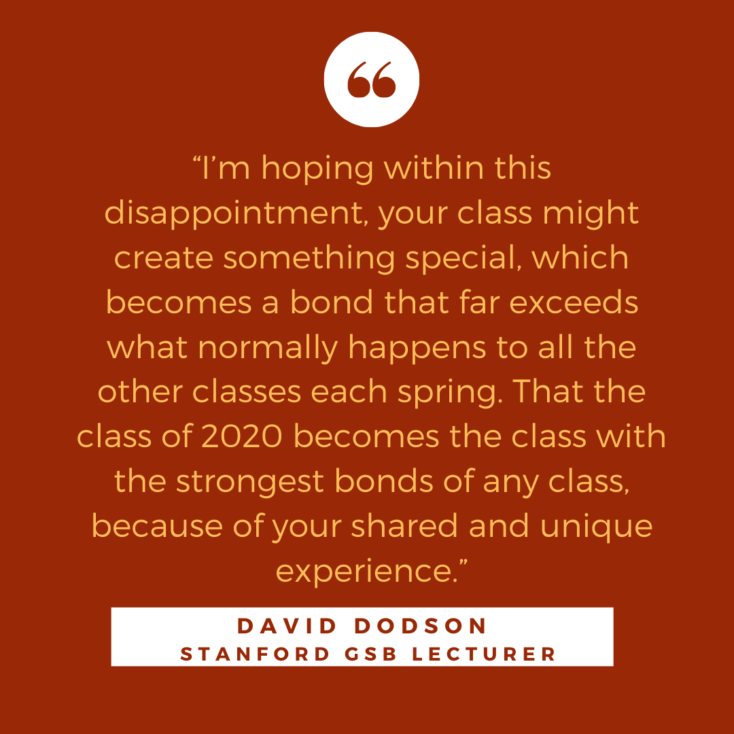 The Silver Lining of COVID’s Timing If COVID-19 had struck before the digital age, its crippling effects on education would have been profound. Thankfully, students of this generation are tech natives and feel completely at home in an online environment. They deftly use their virtual and in-person options to maximize opportunities for advancement, enrichment, and engagement. Because of this pandemic, we’ve learned that interacting online can provide distinct advantages. With technology, we can connect with anyone, anywhere much more easily, quickly, and economically. Elite business schools had already begun to boost integrated digital teaching into core MBA courses prior to the pandemic. Vijay Govindarajan of Dartmouth College’s Tuck School of Business tells The Economist that “digital technology can help a top school ensure its gold-plated MBA programme shines even brighter.” Critics who believe schools should reduce MBA tuition as online learning continues should step back to examine the bigger picture. With vaccine distribution ramping up, we know the pandemic won’t last forever. Meanwhile, programs continue to strive for ways to offer students the best experience possible. As The Economist notes, “business schools deserve credit for adapting their business models—as their professors preach others to do. Many delayed the start of semesters, offered generous scholarships, waived exam requirements and liberalised policies on deferrals.” A top MBA admissions director whom we interviewed about this topic said, “No one has been phoning it in during this pandemic—that’s just not the mindset of these elite programs. Their dedication to their brands and their students is deep and wide. COVID-19 was a unique business problem, and both students and programs (and employers) have risen to the occasion.” Long-Term ROI of the MBA Despite uncertainties in the job market caused by the coronavirus, the MBA still offers a strong return on investment.  “Applicants understand an MBA as a long-term investment in their future,” says Beth Tidmarsh, a former Kellogg MBA admissions officer who now works on the SBC team. “Thus, the long-term brand reputation and credential of a top-tier B-school is appealing.” The reason leading U.S. business schools remain in demand, despite high MBA tuition fees, is that top employers continue to source their talent from these pools of students, explains one MBA career coach on the SBC team. This is especially critical for students planning to make an industry and/or functional pivot post-MBA. Between the recruiting opportunities and broad-reaching alumni networks, there is tremendous value in the MBA even amid a pandemic. “Top schools are committed to creating a class that brings in diverse perspectives from around the world to enhance student learning and the overall classroom experience,” Beth notes. “Managers and leaders of the future will tackle problems in a highly interconnected world, do business on a global scale, and the issues are only getting more complex…especially in this current climate.” The post Pandemic Has Little Impact on MBA Tuition appeared first on Stacy Blackman Consulting - MBA Admissions Consulting. |
| FROM Stacy Blackman Consulting Blog: B-Schooled Podcast Episode #40: Round 3 (or Final Admissions Round) Considerations |
 In the timeline of any given MBA admissions year, Round 3 has always been an enigma. Does anyone get accepted in Round 3? They must … or else the program wouldn’t offer a Round 3 in the first place, right? This episode leverages the experience and insight of the entire Stacy Blackman Consulting team to detail what kind of candidate might be a serious contender for Round 3, and who is better off waiting until Round 1 of the next admissions year. Listen to B-Schooled episode #40 here, or on any of the podcast apps listed below. B-Schooled is available on most major podcast apps, including: Apple Podcasts Spotify Stitcher TuneIn Please be sure to subscribe to B-Schooled so that you don’t miss a thing. If there’s something you’d like for us to cover in a future episode, please email podcast@stacyblackman.com. We’d love to hear from you! The post B-Schooled Podcast Episode #40: Round 3 (or Final Admissions Round) Considerations appeared first on Stacy Blackman Consulting - MBA Admissions Consulting. |
| FROM Stacy Blackman Consulting Blog: MBA Admissions Insights on Round 3 |
 Round 3 deadlines are nearly upon us! While the final round is the biggest gamble of the application cycle, top MBA programs have it for a reason. Chiefly, they use it to admit those stellar students that add something special to their classes. We’ve surveyed the SBC consultant team, which includes former MBA Admissions Officers, to gather MBA admissions insights on the nuances of round 3. MBA Admissions Insights from SBC’s Team For top US, full-time MBA programs, we almost always encourage candidates to apply in rounds 1 or 2. That’s because there are simply fewer spots open in round 3. To gauge viability at top MBA programs in this round, we evaluate what is truly remarkable in the candidate’s profile. What do we mean by remarkable? In some cases, it may mean unusual work experience, substantial community service, or compelling leadership examples. Or, it might mean having a diverse background, unique interests outside of business, or entrepreneurial success of some sort. SBC consultant Sarah shared this perspective about round 3: “You are usually being considered along with the waitlisted applicants and need a compelling reason as to why you waited so long. If you are in a traditional industry, it’s a steep climb.” The flipside though is that R3 is perfectly acceptable for other program types. This includes part-time (PMBA) and executive programs (EMBA) and EU programs, as well as some full-time, 2-year US MBA programs. Lisa on the SBC team clarified why: EMBA and PMBA tend to have a more consistent application volume throughout the cycle and admit people up to the last minute. There are also full-time programs that have similar application patterns; they are just not the top-tier ranked, big-name programs. Some full-time programs in medium to large urban areas have a decent size R3 (and R4 if they have one). That’s because they might have industries or other aspects to their area that sees a spring/summer heavy transient population. For example, urban areas with major hospital systems utilizing residents release matches in Feb/March to start in July, so a trailing significant other might not know where s/he will be until spring. Or, if there is a large industry hub doing well, then more people might be moving to the area—and that usually coincides with promotions in the new year and/or school year. For programs in these areas, they often know there will be a small, quality application bump in the last round. So, Lisa says, depending on your profile and the schools you target, the last round(s) can still be viable/make sense. Use the Optional Essay  You should use the optional MBA essay to explain why you waited until the third–or final–round to apply. You don’t want anyone to jump to the wrong conclusion. They may wonder whether you’re using round 3 as a last-ditch effort to get into business school in the fall after receiving rejections from other schools in earlier rounds. Margaret, who has been with the SBC team for over 12 years, shared: “It makes sense to include an optional essay about timing. I don’t think a person needs to apologize for applying in Round 3—what would be the point of giving people this option if you’re going to blame them for using it? —but I do think there needs to be a good reason for it.” “As I recall, several of my Round 3s were military people on deployment, and this was the earliest they were able to pull together applications,” she adds. Candidates with extremely specific backgrounds or personal reasons are best positioned for round 3 at the top MBA programs. As SBC consultant Sarah notes, “We often support round 3 for applicants who come from those ‘exception’ groups—those working offshore on an oil rig, deployed from July through November. Military. Those in the midst of selling a company and unable to move until the new year.” With limited slots available, SBC recommends that you fine-tune your focus on schools where you’ll make a compelling candidate. A strong, well-thought-out application is critical. Make sure your academic profile aligns with the school’s median GMAT and average GPA. Also, ensure that you add something special to the class that the admissions committee didn’t see earlier in the season. Standing out from the pack is imperative, and never more so than when applying later in the game. As Stacy mentioned in this US News blog post, if you want to do well in the admissions process, you have to communicate who you are, not just what you do. Contact our team today to request tailored advice to determine whether round 3 is a viable option for your profile. What MBA Programs Say About Round 3 (Final Rounds) 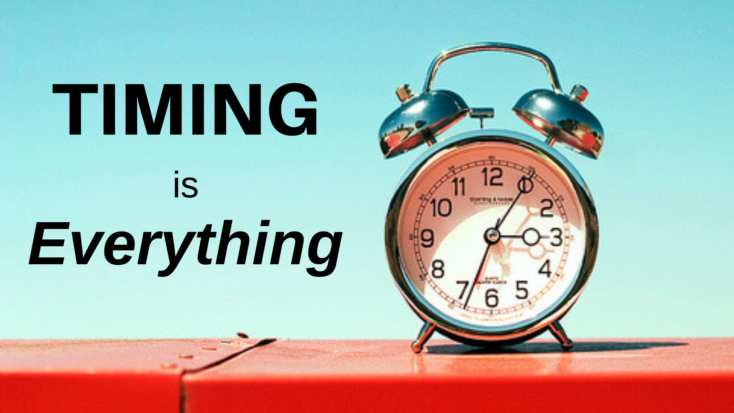 Now that you’ve read SBC’s MBA admissions insights, here’s a sampling of opinions from several top MBA programs regarding Round 3*. Note that you’ll often see more encouraging feedback on round 3 from full-time MBA programs ranked outside of the top 7. Yale School of Management “My view is that you have nothing to lose and everything to gain by applying in Round 3,” says Admissions Director Bruce DelMonico. His reasoning? Well, they always save room for applicants from the final round. Plus, unlike at some business schools, international students are welcome to apply in the third round. And finally, DelMonico says, “Round 3 can be a ‘test run’ for your next application, without any negative consequences. For applicants who aren’t admitted this year, we provide feedback upon request over the summer on how you might be able to improve your candidacy, so there can even be a benefit to applying now.” MIT Sloan School of Management “Three years ago, we decided to add a Round 3 application deadline for a variety of reasons, one of which was because we wanted to accommodate applicants who become ready to apply later in the traditional MBA admissions cycle,” explains MBA admissions director Dawna Levenson. “The Round 3 application deadline was designed to give these individuals—whose professional or personal circumstances have unexpectedly changed—an opportunity not to have to wait another year. So if this sounds like you, and you are now ready to begin your MBA studies next fall, I encourage you to apply!” UT McCombs School of Business “Our goal in all of our programs is to build the best and most diverse class that we can, NOT to fill all of our seats as fast as we can. So the best time to submit your application is when you are ready to do so, when you’re confident it will be the best representation of you and your fit with the program. You can trust that we’ll be ready to start the review process,” writes Kimberly Jones on the McCombs MBA Insider blog. Michigan Ross School of Business And finally, admissions Director Soojin Kwon offers these MBA admissions insights for those considering whether to apply in Round 3.
 Lastly, it’s important to have a Plan B in case things don’t go your way. If round 3 doesn’t work out this season, know that you can reapply to those schools—and some new ones, too—next year. *R3 refers to the last round’ for schools that have a R4, then R3 is still more viable. The post MBA Admissions Insights on Round 3 appeared first on Stacy Blackman Consulting - MBA Admissions Consulting. |
| FROM Stacy Blackman Consulting Blog: HBS Interview Prep: Format, Criteria + Sample Questions |
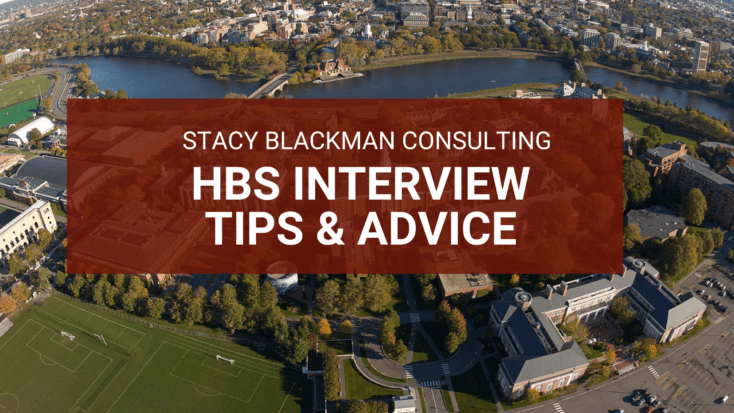 On February 3rd, thousands of anxious round two applicants to Harvard Business School will receive news of their fate as interview invites and release decisions go out. Are you one of the lucky ones preparing for an HBS interview? If so, Stacy Blackman Consulting can help. The SBC team has several HBS admissions experts, including former HBS Admissions Officers who also hold HBS degrees. In other words, their expertise is deep. SBC consultant and former HBS Admissions Officer Andrea has exclusive insider advice about preparing for the HBS interview. Today, we’re sharing this wisdom with you. “The interview really is the deciding factor as to whether or not the candidate gets in,” Andrea reveals. “Very few interviews don’t go well, so you really have to rise to the top of the good interviews.” Contact one of our SBC Principals to request availability for HBS interview preparation by emailing hbs@stacyblackman.com. HBS interview prep support at SBC is available only after the school has extended interview invites. The Harvard HBS Interview  What is the #1 most important tip? “The single most important element of the interview is demonstrating deep intellectual curiosity with the ability to develop a point of view or perspective,” says Andrea. HBS continues to assess leadership and academic and quantitative capabilities during the interview. Now, the focus turns toward personal qualities that are hard to assess in a deep way on paper. “You cannot let even the smallest question seem surface level,” she warns. “Demonstrating depth of insight and the ability to cross-correlate are so important.” What does the HBS interviewer do to prepare? Your HBS interviewer will prepare beforehand by extensively reviewing your application, line by line, to formulate tailored questions, Andrea reveals. That way, the HBS interviewer is fully briefed, and the questions are forward-moving—not a recap of what was already submitted. “The interviewer is trying to get into the mind of the interviewee,” Andrea explains. HBS interviews usually have an observer plus the interviewer. The interview observer’s presence, the tailored, probing questions, and the post-interview reflection are factors that demonstrate the thoughtfulness of the HBS interview process. Despite the extensive prep, there’s always room for spontaneity during the interview. This ensures interviewees stay on their toes. Questions often change, and the interviewer can navigate towards whatever direction the conversation goes.  HBS Interview: Do’s
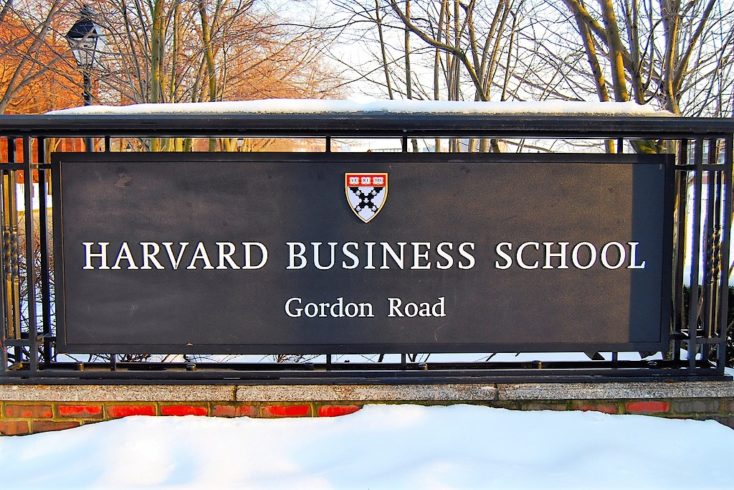 How to Prepare for the Interview Remember, at HBS, no applicant is admitted without an interview. The school wants to hear and understand you beyond your application. Your interviewer will want to understand the kaleidoscope of your traits and attributes. “Each AdCom member is given almost free rein to determine how or what they’d like to assess in the interview. Be nimble and ready to go deep on any topic,” Andrea advises. Make sure you know everything on your resume. Prepare to answer questions ranging from major industry headlines to hobbies and interests. For example, if you’ve said you’re a historical fiction buff, be ready to talk about it. This interview will also cover the nuances of several of your life choices. Make sure your answers show character and introspection. You won’t have any notes in front of you, so become well-versed in your own experiences, both professional and personal. Share framing and context before explaining details. The interviewer has already read a lot about you. Now, it’s your job to make them excited about you—something you fully control with how you shape your answers. Motivations, learnings, anomalies, growth, hesitations, and realizations are all ways to show depth of character and genuinely connect with the interviewer beyond the facts they have already read. Since the interviewer’s questions are tailored to your candidacy specifically, know there’s a reason for each question. The interviewer may be asking in reaction to a recommender comment, the challenges of your industry applicant pool, or other reasons based on your application. “At the end of the interview, if you are asked what else should we know about you, know that it is not a throwaway question,” Andrea says. “You should have managed the interview to that point so that you know what you wanted to share that you haven’t and take the opportunity to work it in.”  HBS Interviewer Evaluation Afterward, your interviewer writes a summary of the experience, including the good, the bad, and the ugly. The interview write-up ends with a recommendation to the director on whether to admit. There are roughly three recommendations: “No way,” “solid—fine to be in class,” and “rock star.”
HBS Post-Interview Reflection Tips The “post-interview reflection” has no official word limit and is due within 24 hours of the interview. Nonetheless, we suggest you keep it to one page or less in length. In it, you should thank the interviewer(s) and recap what you enjoyed about your conversation. Don’t forget to answer the question they asked directly. (In the past, it has been, “How well did we get to know you?”.) If you believe the interview went well, you don’t need to write more than a few paragraphs. But what if you felt you could’ve answered a question better, or think there’s something substantive you should have included? Then use the reflection to add clarity or dimension in a way that further demonstrates your intellectual curiosity. End with a 30,000-foot reflection on what the entire process has meant to you, any deep insights you have as a result, and what lies ahead for you.  Sample HBS Interview Questions Below is a recent set of questions from an interview with Chad Losee from an SBC client:
Baker Library image credit: Dariusz Jemielniak (CC BY-SA 3.0) The post HBS Interview Prep: Format, Criteria + Sample Questions appeared first on Stacy Blackman Consulting - MBA Admissions Consulting. |
| FROM Stacy Blackman Consulting Blog: B-Schooled Podcast Episode #41: HBS Interviews |
 Are you one of the lucky MBA candidates who received an HBS interview invitation today? Or perhaps you plan to apply to HBS in the future and are looking for some insight into what they’re looking for? This episode is dedicated to explaining HBS’s unique, personalized interview process, and also covers tips on how candidates can prepare. Listen to B-Schooled episode #41 here, or on any of the podcast apps listed below. B-Schooled is available on most major podcast apps, including: Apple Podcasts Spotify Stitcher TuneIn Please be sure to subscribe to B-Schooled so that you don’t miss a thing. If there’s something you’d like for us to cover in a future episode, please email podcast@stacyblackman.com. We’d love to hear from you! The post B-Schooled Podcast Episode #41: HBS Interviews appeared first on Stacy Blackman Consulting - MBA Admissions Consulting. |
| FROM Stacy Blackman Consulting Blog: How to Get Into Harvard Business School |
|
[img]https://www.stacyblackman.com/wp-content/uploads/Get-Into-HBS-734x413.png[/img] [b]Lessons Learned From Our Admissions Experts[/b] “How can I get into Harvard Business School?” That’s the first question that the majority of our prospective clients ask. Our SBC consultants have guided more HBS admits than any other program, in large part because the demand for the Harvard MBA is so high in our client pool. The 2020-2021 cycle has been the most competitive admissions season in over a decade. MBA demand has surged for a variety of reasons. First, there are the enticing salary reports among recent graduates. Secondly, the [url=https://www.stacyblackman.com/covid-affected-mba-applicants/]economic slowdown[/url] has prompted many professionals to think about heading back to school. Then there’s renewed optimism from international students sparked by the Biden administration’s predicted MBA-friendly policies. And finally, [url=https://www.stacyblackman.com/hbs-deferral-option/]deferrals[/url] granted by top MBA programs due to the pandemic have contributed to this season’s unprecedented demand. We have several former HBS Admissions Officers on our SBC consulting team, so we decided to gather HBS admit data across our client pool to define themes and strategies that can help future MBA applicants. As you’ve no doubt read on the HBS website, their preferred framework for [url=https://www.hbs.edu/mba/admissions/Pages/who-are-we-looking-for.aspx]assessing MBA applicants[/url] is three-pronged. They seek candidates with these characteristics: [list] [*]Habits of Leadership[/*] [*] Analytical Aptitude & Appetite[/*] [*]Community Citizenship[/*] [/list] We present these lessons to you on how to execute on this 3-prong framework in the MBA application, based on our review of the profiles of hundreds of successful HBS admits. If you’d like to speak with one of our Principals about your candidacy, please [url=https://www.stacyblackman.com/contact/]request a free analysis here[/url]. [img]https://www.stacyblackman.com/wp-content/uploads/Stacy-and-John2-734x532.png[/img] How to Get Into Harvard Business School: Show Habits of Leadership “Leadership can look a lot of different ways,” notes SBC consultant Andrea, who served on the HBS Admissions Board for five years. Capital L leadership is one form. These are the people in positions of authority professionally—those whose roles convey they are leading the parade. We also see HBS admits who are “small-L” leaders. Irrespective of their actual job titles, these professionals are strategic, innovative, and proactive. The small L leaders step up when needed and thrive when times are hard. Plus, they demonstrate leadership traits over time, and can show that track record to HBS throughout their application. Capital L leadership may include examples such as fraternity president, Eagle Scout, student council president, varsity soccer team captain, etc. Small L examples include: starting a recycling program in your dorm or starting a community garden in your community to source local produce. Maybe you served as an effective role model and mentor in your firm or developed a new way to approach building a financial model at your bank. In a nutshell, Andrea says, “You saw a need, and you filled that need.” To get into Harvard Business School, leadership examples must shine throughout the entire HBS application. That includes your short responses on work experience entries; your list of extracurricular involvement and awards; your resume; and, of course, the essay. “Leadership is demonstrated not only in the roles and titles held, elections won, etc.. but also in how you interact with others and ways in which you’ve made an impact alone or with others, “ shares Andrea. [img]https://www.stacyblackman.com/wp-content/uploads/pexels-christina-morillo-1181396-734x490.jpg[/img] Show Analytical Aptitude & Appetite “Academic, analytical and quantitative prowess is crucial, as HBS Adcom will look at the applicant’s GPA and test score. HBS AdCom will also comb through transcripts and consider the skills the applicant exercised and built in his or her work experiences,” Andrea reveals. For reference, we’ve assembled a sampling of test scores for SBC client admits from this season. GRE scores ranged between a 630 converted to an 800 perfect test score. GPAs ranged from 3.4 to 3.9. GMAT scores ranged between 690 and 770. Undergraduate institutions The school pedigree of HBS admits varies considerably. Here are some of the undergraduate colleges and universities attended by our SBC client pool of HBS admits. Duke University of Minnesota Vanderbilt Brown Princeton Waseda (Tokyo) UC Santa Barbara Harvard Williams Yale U Sao Paulo UC Berkeley Cornell Boston University Wesleyan Middle East college UVA U Maryland UTA Cornell Univ. Warwick (UK) Boston University Duke Dartmouth U Penn Michigan “Strong work experience can compensate for lack of quant classes in college. In addition to the stated criteria, intellectual curiosity and horsepower are buried in there. This can come across as dorky, but to HBS, dorky is good!” Andrea continues, “Research projects, thesis projects, reading and interests you develop on your own all qualify under horsepower. One’s quest to satiate his/her intellectual curiosity needs to shine through for the HBS application. This comes across in extracurriculars, awards, on the resume, and certainly in the HBS essay.” Examples of ‘dorky-is-good’ across our SBC client pool include: [list] discussing research projects your pursued that weren’t required [/*] taking on TA positions [/*] working in a lab and writing a paper with a professor [/*] opting to do original research for a thesis [/*] developing a new curriculum with a faculty member[/*] [/list] “This can be on display throughout the application. But the essay is a great place to really get a sense that a candidate thinks about the issues deeply and is on a quest to satisfy intellectual curiosity,” Andrea explains. [img]https://www.stacyblackman.com/wp-content/uploads/1024px-Students_in_a_Harvard_Business_School_classroom-734x489.jpeg[/img] Show Engaged Community Citizenship “Personal qualities encompass ethics, morals, values, judgment, and ego,” Andrea notes. That is a significant element should you advance to the in-person interview. She simplifies this as: “How you will play in the sandbox that is the HBS classroom.” Andrea also says that citizenship is less about what you say and more about the overall tone of how you say it: how you generally come across in the application. HBS doesn’t want egotistical or arrogant types in the program, and the reading of the application is the first place they have their antenna up looking for it. For example, take the applicant who is from a common demographic (investment banker), comes from Darien, Connecticut, who studied at an elite undergrad and has traveled the world. That applicant must be very careful with the tone of his application and essay. HBS Adcom is going to be looking out for arrogance based on privileged life circumstances and choices. “Talking in a braggy manner and discussing an over-the-top lifestyle would take the applicant out of the running. Instead, I recommend trying to present an unexpected application that shows real depth around how he makes a positive impact in the communities in which he’s spent time,” Andrea says. [img]https://www.stacyblackman.com/wp-content/uploads/pexels-rodnae-productions-6647174-734x489.jpg[/img] It takes a lot to rise to the top of the oversubscribed populations. If you are in an overpopulated pool, you have to do things that set you apart from that herd. [b]How to Get Into Harvard Business School: Applying the framework to the HBS essay[/b] The essay really is make-or-break for HBS, Andrea reveals. So many applications have acceptable credentials up to that point of the application. But it’s the essay that sets the overall application apart and earns it the interview. “Go deep. Get personal. Make sure the reader feels genuineness and authenticity. Make them get goosebumps while they are reading,” Andrea suggests. “At the end of the essay, the reader should feel so moved they want to meet you immediately. They can’t wait to get to know you better, hear more of the story, ask you specific questions to learn more, be inspired, etc.” The HBS essay cannot just be a story of successes and accomplishments, Andrea cautions. “It has to leverage some creative theme or thread that is big and deep and acts as a mechanism to pull the story together. Open with that theme, then bring it to life with experiences and then end on that theme—come full circle.” *** SBC is the only MBA admissions firm with a complete panel of former MBA admissions officers, including Harvard Business School and Stanford GSB. If you’d like to speak with one of our Principals about your candidacy, please [url=https://www.stacyblackman.com/contact/]request a free analysis here[/url]. The post [url=https://www.stacyblackman.com/how-to-get-into-harvard-business-school/]How to Get Into Harvard Business School[/url] appeared first on [url=https://www.stacyblackman.com]Stacy Blackman Consulting - MBA Admissions Consulting[/url]. [img]https://feeds.feedburner.com/~r/StacyBlackman/~4/X88QW-OsMYg[/img] |
| FROM Stacy Blackman Consulting Blog: Smart Steps to Create Your Personal Brand |
 “FRESH IDEAS FROM THE BLACKLIGHT” SBC’s Weekly Newsletter for Professionals Have you figured out your personal brand yet? Given the legions of Instagram influencers and YouTube stars, it’s clear that having an identifiable personal brand can open doors and create new opportunities. No matter what industry you work in, a personal brand is essential to achieving your career goals. But self-promotion does not come easy for some. “People worry that selling themselves means giving a false impression,” notes Professor Suzanne Muchin from the Kellogg School of Management. “But nothing could be further from the truth. Great selling requires the purest form of authenticity.” In reality, Brand “You” is the unique blend of experiences and skills that make you who you are. As Muchin explains in Kellogg Insight, this authenticity comes through in the stories we tell others about ourselves—stories that communicate our values, convictions, strengths, and goals. “Whether you’re an entrepreneur, a job candidate, or an advocate for a new idea, good storytelling is one of the skills you need to stand out,” Muchin says. Find Stories that Support Your Personal Brand The first step in creating your brand identity is to separate fact from fiction and authenticity from aspiration. Without evidence and examples, your brand messages are nothing more than empty claims. Why should a hiring manager believe that you “can lead creative teams”? Or that you “have made a difference in the causes you are passionate about?” It’s one thing to say you are adaptable. It’s another thing to describe the various life experiences that shaped your adaptability, notes Muchin. That’s why you need to back up those assertions with what companies like Procter & Gamble call “reasons to believe.” The most effective way to convince others that these claims are valid is through a compelling story. So, check out these sample brand messages and their supporting evidence to see what we mean. Brand Message: I have excellent communication skills. Reasons to Believe:
Reasons to Believe:
Reasons to Believe:
Your Brand Should Make an Impression In the long run, a compelling personal brand goes beyond showing off your professional strengths. According to Muchin, the most incisive question you can ask yourself is, “What do I want to be memorable for?” She believes this question—ultimately a version of “what makes me special?”—will prompt your stories to surface.  To develop your story, you have to be willing to dig deep, notes Muchin. “The amount of self-awareness it requires to discover one’s unique story can make people uncomfortable,” she says. “But that’s a necessary part of the process: you need to be willing to get uncomfortable. It’s not just about being social.” After you have fine-tuned the stories that support your personal brand, Muchin says the next challenge is learning how to weave them into conversations at job interviews, networking events, or any other situation where the goal is to sell yourself. Every answer you give is an opportunity to tell one of your stories, she explains. “Whenever you enter a room, ask yourself ‘What conversation do I want to have?’” Muchin suggests. “You need to have a roadmap for how to arrive at your story, and for how that story then leads you to a conversation that will engage others.” *** So, did you enjoy this post about creating your personal brand? It originally appeared on the Blacklight, our weekly newsletter for professionals. At the Blacklight, we aim to illuminate with every dispatch that lands in your inbox. If you’re thirsty for guidance to help you slay it at work or as a student and move your goalposts closer, sign up today! The post Smart Steps to Create Your Personal Brand appeared first on Stacy Blackman Consulting - MBA Admissions Consulting. |
| FROM Stacy Blackman Consulting Blog: GMAT or GRE for MBA Applicants: What’s the Right Strategy? |
|
Most of the top business schools in the United States now accept both the GMAT and GRE exams for MBA admission. But how do you decide which test you should take, the GMAT or GRE? [img]https://www.stacyblackman.com/wp-content/uploads/hand-person-girl-woman-thoughtful-decision-1080572-pxhere.com_-734x551.jpg[/img] By accepting the GRE as an alternative in the admissions process, many elite schools have [url=https://press.kaptest.com/press-releases/kaplan-test-prep-survey-gre-acceptance-among-business-schools-hits-record-high-most-say-gre-option-helps-them-enroll-more-non-traditional-mba-students]diversified their applicant pool[/url]. Plus, prospective grad students of the arts and sciences have typically submitted GRE scores, so applicants deciding between business school and other graduate programs appreciate having one less test to study and pay for. Meanwhile, the GMAT, long considered the gold standard for the specific academic skills needed in graduate business school, is more expensive and offered in fewer locations worldwide. One essential difference between the tests is that the GRE requires you to do the arguing, whereas in the GMAT you analyze what has been argued. The style expected from GRE test readers is more abstract and draws from various sources and disciplines for examples or references, whereas the GMAT is more concrete and analytical. This supports the suitability of the GRE for the more academically-minded student. Let’s take a look at some common questions SBC clients have had about choosing the GMAT or GRE for their MBA application package. You might find your own situation mirrored in one of these examples. [img]https://www.stacyblackman.com/wp-content/uploads/decision-5291766_1920-734x489.jpg[/img] [b][/b] [b]Q: How do I decide whether to take the GRE vs. the GMAT?[/b] A: The GMAT and GRE are two entirely different tests that don’t remotely resemble one another. Which test to take will depend on the applicant’s profile, college major and coursework, and target MBA programs. Try a free practice test online for both the GRE and GMAT to assess which test is best for you. If you do significantly better on one over the other, you probably have your answer. Discuss with your MBA admissions consultant to validate which test score to submit. There are nuances to the decision, such as your industry profile, target school, and the scoring differential between the tests. Some schools are more flexible with lower GRE scores. Jenna, a former NYU Admissions Officer on our SBC team, shared: “We did not have to report GRE scores to the ranking agencies, so we were much more willing to ‘dip’ in test scores if the candidate took the GRE instead of the GMAT.” [b]Q: [/b][b]Should I take the GMAT or GRE for Harvard?[/b] A: “The majority of applicants historically have favored the GMAT, but HBS has no preference for one over the other,” shared Andrea, a former HBS Admissions Officer who is now an SBC consultant. [img]https://www.stacyblackman.com/wp-content/uploads/HBS-sign-734x490.jpg[/img] “They will zero in on how you performed relative to the GMAT. Some admissions staff use the converter tool to get a sense of your overall performance.” [b]Q: I am looking to take advantage of MIT dropping its testing requirement to apply this year, but would like to take a finance class to boost my chances. I got Cs in a few of my finance classes in undergrad. What is your advice?[/b] A: Not submitting a standardized test score is only beneficial if all other measures work well, especially the grades. So if you had stellar grades undergrad, AdCom would probably be ok evaluating you without a test. But because your grades were low in quant classes, having a GMAT or GRE score to help counteract those grades is essential. Even with A’s in multiple courses, it will be more challenging without another measure (especially at a school like MIT Sloan). Reconsider taking either the GMAT or the GRE, which could do much more to help your chances than taking finance classes. [b]Q: What is the converter tool? I only see reported GRE averages on the MBA program sites.[/b] A: The reported GRE scores on the MBA program websites aren’t entirely reflective for any given applicant because they are averages. They reflect only a fraction of the admitted class. Keep in mind the reported GRE test score averages are not adjusted by crucial variables such as demographic, function, industry, career path, college caliber, or the extent of quantitative exposure. So, we recommend using this [url=https://www.ets.org/gre/institutions/admissions/interpretation_resources/mba_comparison_tool?WT.ac=40361_owt06_180820]conversion tool[/url] to assess GRE scores as another way to evaluate your candidacy. Here is a sampling of GRE scores from our HBS admits from the current season to demonstrate the range: V161, Q167 V160, Q163 V160, Q159 V168, Q166 V166, Q170 V170, Q170 V169, Q164 V165, Q165 [b]Q: [/b][b]I just got out of the GRE. I got a 160 verbal and 159 quant. This translates to a 630 GMAT score. I should tell you I have taken the GMAT a few times. My highest score has been 640, and my lowest and most recent score has been 580. Which test should I submit?[/b] A: When in doubt, we will usually recommend submitting the score that is the highest, especially if the differential between the GRE and GMAT score is significant and if there’s enough quantitative exposure through college and career. [b]Q: I took both the GRE and GMAT practice tests but did better on GRE. Which should I submit?[/b] A: We have had exceptionally quant-proficient clients who bombed the GMAT multiple times (e.g., one client took it four times and couldn’t break a 650) but then switched to the GRE and absolutely killed it. The client who took it four times scored a 720 GMAT equivalent when converted. This client reported both sets of scores and got into the programs they had hoped for. [img]https://www.stacyblackman.com/wp-content/uploads/up-to-you-balloon-734x489.jpg[/img] Look at the quantitative percentiles on both tests, the difference between your scores, and the extent of quantitative coursework from college before determining which test to submit. There are scenarios where we may recommend submitting the weaker test score because of the quantitative percentage. [b]Q: While they may accept both GRE and GMAT, do admissions committees have a preference or bias for one over the other?[/b] A: We surveyed the former MBA Admissions Officers on our SBC team, and here’s their advice. [b]Anderson: “[/b]The GRE is fine if the quant % is high enough, ideally over 80 percent.” [b]Booth:[/b] “If you haven’t taken either, take the GMAT, but if you’ve already taken the GRE and are happy with your score, don’t take the GMAT just to take it.” [b]CBS:[/b] “We used the conversion tool online to see what the GRE would equal to GMAT. They really don’t care which one because they can see what the GMAT equivalent was.” [b]INSEAD: “[/b]INSEAD will focus on the % breakdown in verbal vs. quantitative. The ratings are assigned to scores based on a 1-5 scale, so 5 = 90%+, 4 = 80%+, 3 = 70%+, 2 = 60% +, 1 = 50%+. This is true for both the GMAT and the GRE. Aim for 70%+, ideally 80%+, to demonstrate that the prospective student can cope with the rigor of the program.” [b]Kellogg:[/b] “Submit GRE if a great all-round candidate and GMAT is the weak-spot.” [b]Stanford: “[/b]Submit the score that substantiates that you can do the work.” [b]Stern: “[/b]Stern is so super sensitive about test scores, and doing well on the GRE/GMAT matters. We converted the GRE to the GMAT using the online conversion tool. Q was more important than V. We rarely cared about IR or AWA unless it was really low.” [b]Q: Which MBA applicants should favor the GMAT over the GRE?[/b] A: For typical top MBA applicant profiles, such as those from the traditional fields of finance or consulting, the majority opt to submit a GMAT score. The same is true for over-represented applicants, such as Indian engineers. [img]https://www.stacyblackman.com/wp-content/uploads/1024px-GMAT_LOGO-734x316.png[/img] If you come from a traditional or over-represented career path/ demographic, we recommend trying the GMAT first. The GRE is accepted, but it can be perceived as easier quantitatively than the GMAT. If you can score high enough on the GMAT as a traditional industry applicant, that should be your plan A. If the GMAT score comes in below average for a target MBA program and you’re a traditional industry applicant from a common demographic pool, it would be wise to pivot to the GRE. [b]Q: Which MBA applicants should favor the GRE over the GMAT?[/b] A: For anyone struggling with the math side of the GMAT, we would recommend shifting to the GRE to see if the applicant can gain an edge, as the quantitative section of the GRE is easier than the GMAT quant section. If an applicant is nervous about their quantitative performance, they will likely perform better on the GRE. [img]https://www.stacyblackman.com/wp-content/uploads/Stacy-GRE-734x368.png[/img] We have seen that the GRE could be a [url=https://www.stacyblackman.com/client-case-study-how-the-gre-general-test-can-complement-an-unconventional-applicant/]valuable differentiator[/url] and smart strategic decision for an MBA candidacy. MBA programs began accepting this exam to attract a broader, more diverse set of applicants. Because the GRE is accepted at many graduate programs, incorporating the test into an application strategy often bolsters positioning, especially for non-traditional applicants. Joint degree applicants, such as those applying to MPP/ MBA programs, usually opt to take the GRE. Hear more about how the GRE can help MBA admit chances from Stacy Blackman Consulting principal Esther Magna: Those that submit GRE scores may be highlighting strengths outside of the more common business skill-set. When developing a full strategy, choosing the GRE can be another way to highlight a unique path. The post [url=https://www.stacyblackman.com/gmat-or-gre-for-mba/]GMAT or GRE for MBA Applicants: What’s the Right Strategy?[/url] appeared first on [url=https://www.stacyblackman.com]Stacy Blackman Consulting - MBA Admissions Consulting[/url]. [img]https://feeds.feedburner.com/~r/StacyBlackman/~4/aGWCM5_Ocbs[/img] |

|
|
||